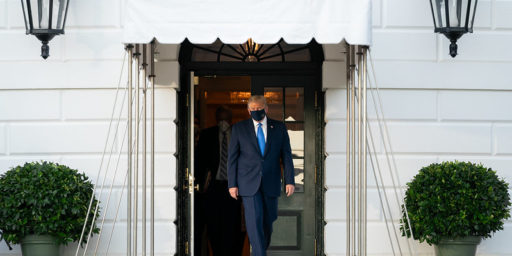Pentagon Drops Internet Voting Test
Pentagon Drops Plan To Test Internet Voting
The Pentagon has decided to drop a $22 million pilot plan to test Internet voting for 100,000 American military personnel and civilians living overseas after lingering security concerns, officials said yesterday.
The program ran into trouble late in January when a group of academics who had been invited to review the system released a report saying the Internet was so insecure that the integrity of the entire election could be undermined by online voting. Two weeks later, Deputy Defense Secretary Paul D. Wolfowitz decided not to allow Internet ballots to be counted in the presidential tally. At the time, the Pentagon said the program would go forward on an experimental basis.
Now, the Pentagon has decided that even the experiment is over.
“It’s not that it’s never going to go in test mode,” said Pentagon spokesman Glenn Flood. “It’s that right now we’re not going to do it. We have to step back and look at everything that we’ve done for two or three years in this thing. But right now we’re not going forward.”
Academics hired to monitor online voting and Accenture eDemocracy Services, the firm running the system, said the experiment could have been an important learning experience. Since the electronic ballots wouldn’t really count, the experiment could have included “white hat” hackers hired specifically to test the security of the system by attacking it.
***
The American pullback is in direct contrast to Europe, where governments are pursuing online voting in an attempt to increase participation. The United Kingdom, France, Sweden, Switzerland, Spain, Italy, the Netherlands and Belgium have been testing Internet ballots.
“In Europe, they have such a well-developed process for doing experiments in elections, which provides them with so much good information compared to the ad hoc way that we do things. They’re able to learn stuff and improve their elections,” said Thad Hall, co-author of “Point, Click and Vote: The Future of Internet Voting.”
Interesting. Some variant of Internet voting would seem inevitable as we become a more net-centric society. Testing would seem prudent, especially with much of the investment already made.
The only real down side I can think of for doing it in this year’s presidential election is that, if it is indeed another close one, having potentially conflicting results could add even more controversy and delegitimate the outcome.






The only downside to internet voting is — that it’s absolutely insane. As a senior engineer at Amazon.com, I have a little insight into what it takes to make systems secure. There are a lot of problems with internet voting (and most of these apply to electronic voting at the polling place, by the way). The highlights:
1. There’s no audit trail. a bug — and bugs *will* happen — cannot be reconciled.
2. There’s no good way to reliably authenticate the voter. Who is actually casting that vote?
3. It creates the possibility of automated ballot stuffing.
4. There’s no way to ensure that there’s no coercion. Who’s watching you cast that vote? What stick — literal or metaphorical — are they holding?
With the payoff that comes with fixing an election, and a long history of fixed elections (and I am NOT necessarily talking about Florida; the history of this country goes back more than four years), internet voting is just a very, very bad idea.
—